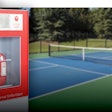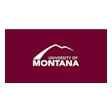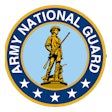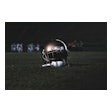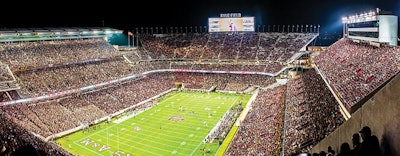
Texas A&M's Kyle Field began its $450 million renovation in November 2013, with a completion date goal set for September 6, 2014 — the Aggies' first home game of the season versus Lamar University. The upgrades are extensive, including expanded seating by close to 25,000 (from 80,000 to approximately 105,000), making it the largest football stadium in the SEC. With the increase in the number of fans came an increase in security demands for the 2014 home opener unlike any Aggies associate athletic director Mike Caruso had dealt with before.
"Learning the physical layout was the most important thing for the event staff," Caruso says, noting that event staff did not gain access to the newly developed stadium until one week before the game due to construction. "We added 22,000 seats on the south end of the stadium, and we added escalators, elevators and suites. There was a long learning curve that needed to be accomplished in a short period of time."
Adding to the challenges was the new layout. In the past, Kyle Field was essentially three sections without concourses connecting them. The renovation changed that while adding more entry points, as well as other areas that needed security checks the night before a game, including offices and custodial and concessions areas. Says Caruso, "That concerned us a bit, but we managed while learning some things along the way."
One lesson learned? During a two-hour weather delay, Caruso had a problem communicating with two of the main gates due to the physical structure preventing radio communications from going through. SEC policy is no reentry, but students were being allowed to leave and return. The miscommunication led to some minor incidents, a situation Caruso attributed to a lack of time for staff to train and test.
Though Caruso knew his team was operating under less-than-ideal training circumstances, the incident serves to underscore the importance of event staff training and management. Each gameday situation brings its own challenges, and managing those components at every level requires meticulous planning and execution, starting with security training, even for non-public-safety event staff.
RELATED: Tightening Front-Line Security in Stadiums and Arenas
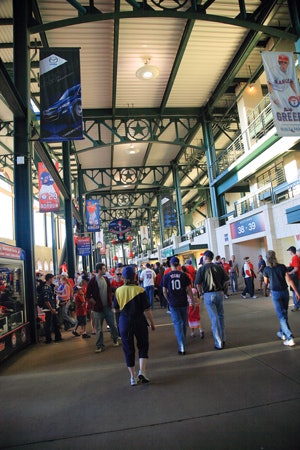 Photo Shutterstock.com/Ffooter
Photo Shutterstock.com/Ffooter
TRAIN OF THOUGHT
The National Center for Spectator Sports Safety and Security (NCS4) at the University of Southern Mississippi partnered with Atlanta-based eVerifile, a provider of technologically advanced risk assessment solutions, to create a sport venue certification for front-line event workers in collegiate and professional sports venues. The platform features a criminal background check option in which the venue can set the criminal disqualifiers, as well as provides a standard level of training. "The goal is to not just teach a retail sales venue worker the ins and outs of retail sales, but it's to teach that person what they can do to be an extra safety person in your venue," says Jennifer Brown, director of strategic solutions for eVerifile. "We want them to be the eyes and ears of the venue, on top of their specific job function."
The training and background checks are accomplished within an hour and can be implemented by the venue. The process can be a mandatory requirement for all new hires, or a requirement for third-party concessions or security groups as part of the bid process. A QR code badge option allows a venue manager to validate - — using his or her smartphone — the person's background in training or testing to that venue's standards.
While the certification is designed for collegiate and professional venues, Brown expects it to eventually make its way to the high school level. "As high school athletics expand, and the need for safety and security increases, we'd like to see high schools use the certification for their paid staff and volunteers, because that is one big gap," she says. "High schools allow volunteers to work in their venues, and the volunteers have no idea what to do in an emergency."
RELATED: Integrating Entrance-Screening Technology in High Schools
"Generally speaking, in terms of security training and event management across the country, I think schools go very light or it's even nonexistent," says Mike Gulino, director of health, physical education and athletics for Byram Hills Central School District in Armonk, N.Y., where 10 to 12 trained staff members are employed at football games. "Schools don't have a plan or the event managers in place who have practiced any plan."
BACKGROUND: CHECK
Equally as important to training event staff is the other part of the NCS4/eVerifile certification: background checks — a topic SMG New Orleans chief of public safety Don Paisant refers to as one of the hotter topics in his profession. Paisant oversees anywhere from 150 public safety professionals working a New Orleans Pelicans NBA game at the Smoothie King Center to 1,000 working a New Orleans Saints game at the Mercedes-Benz Superdome. The reality Paisant faces every gameday is a terrorist threat that lingers around every corner, making thorough background checks on anyone working an event a priority.
Background checks at SMG New Orleans are conducted annually for all armed public safety staff members. The State of Louisiana, by comparison, checks its contractual security personnel every two years, but Paisant notes that there are some groups that will only check a staff member's background every five to 10 years or sometimes only when the person is hired. "Would we like to see background checks done more frequently from a security standpoint? Absolutely, but then it becomes somewhat cumbersome on the state and the office that processes those, along with the monetary issues associated with background checking everyone."
Staff can gain entry to a venue with only an ID badge, something Paisant admits he would like to change, stating, "I would love to move to a solution whereby biometrics is involved."
Biometrics incorporates advanced credentialing technology, such as facial, fingerprint and eye recognition. A similar process is used at Kyle Field. Event staff must go through one entry with six gates that separates ushers, entry staff and concessions employees, for example. Those staff members must be in uniform and show a government-issued photo ID.
While the method for screening staff entering a venue has remained relatively unchanged, the method for protecting that venue has not. "Back in the old days, we were looking for people trying to sneak in beer or whiskey," admits Caruso. "Now, we have to do sweeps of our facilities. We have a command center that has a very robust communications plan, surveillance, and reporting functions that were never considered in the past."
At Kyle Field and sports venues everywhere, it's an all-hands-on-deck protection approach. Says Caruso, "Law enforcement folks and first responders help us with our event. Likewise, if we have an incident, my event staff would be supporting first responders. We support each other."
RELATED: 6 Events that Forever Altered Athletic Venue Safety
This article originally appeared in the November 2014 issue of Athletic Business with the title "Screen Pass"


















